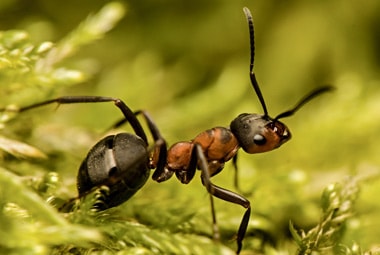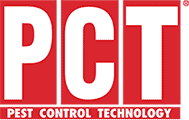
Field ants are a large group of ants that vary greatly depending on the actual species. They are commonly found living outdoors in open meadows, fields, and lawns. These ants will make their way inside of homes while foraging for food, but will rarely if ever nest indoors.
| Pest Identification | |
|---|---|
| Recognition | Adult field ants can be pale yellow, reddish-brown, black or a combination in color. They may range in size from 1/8th- 3/8th of an inch in length. Field ants have a distinctive segmented body that is unevenly rounded on the upper side. |
| Biology | There is not much known about the reproduction cycle of the field ant because it can vary depending on the species. Like other species of ants a single queen will create a nesting area, lay her eggs, and workers will develop to care for the nest, increase its size, and gather food for the queen and future ants. Field ants do not have a stinger; they instead defend themselves by ejecting formic acid from an opening at the tip of their abdomen. They will pinch their victim with their mouthparts and then inject the area with the acid causing a burning sensation. |
| Habits | Along with nesting in open fields, lawns, and meadows, field ants create nests near sidewalks, rocks, trees, fences, and along the foundations of buildings. As they dig out their nesting area they place the soil in a mound at the top of it. Field ants mainly feed on honeydew. Honeydew is a substance that is made by plant-eating insects like aphids. They will also feed on other insects and enter into homes to forage for foods including meats, liquids, and sweets. |
| Prevention | Field ants mainly nest outdoors so it can be difficult to prevent them from choosing your lawn or property. There are however, some things that you can do to help deter them. Store firewood away from your home, avoid having mulch or grass come into direct contact with the foundation- keep a stone barrier between it and the foundation, and keep trees and shrubs well-trimmed away from the outside of your house. Seal any entry points; cracks in the foundation, gaps around windows and doors, holes through screens, and spaces around utility lines in order to help stop them from gaining entrance into your home. |
| Professional | The best way to help prevent or control a field ant infestation is with the help of a professional. At Rottler we can provide field ant control through our home pest control programs. A Rottler technician will apply a perimeter treatment with a residual insecticide to discourage field ants from entering into your home. Spot treatments or bait insecticides may also be used to treat mound nests located in the ground. |

